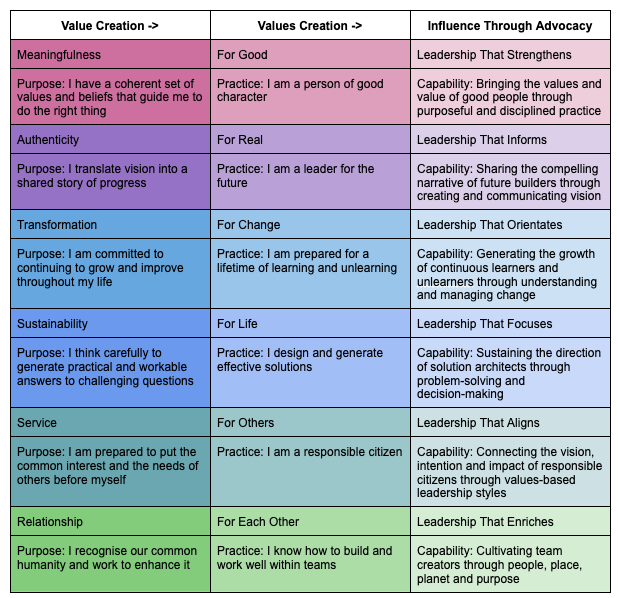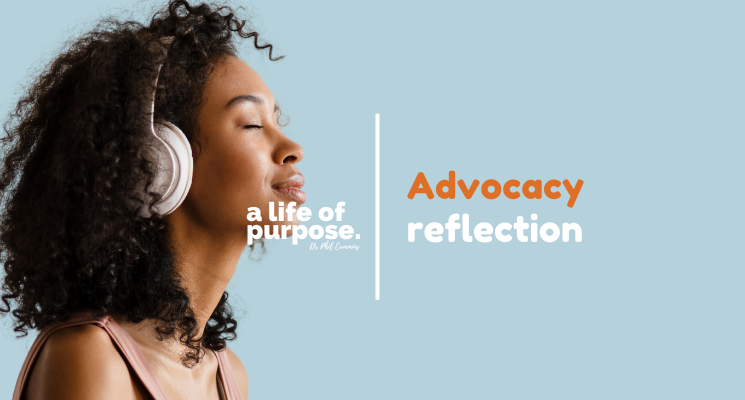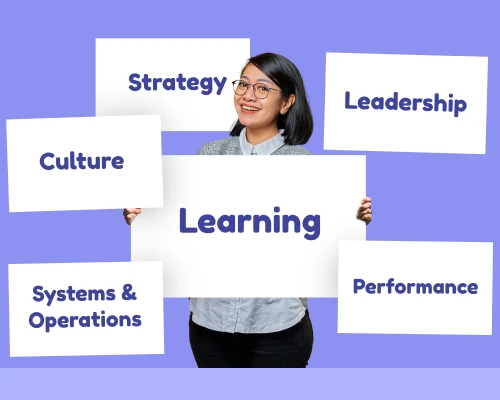
Dr Phil Cummins
Oct 1, 2023 | 5 minute read
Make A Difference
Dr Phil Cummins introduces the abiding influence of advocacy in a school that honours today’s learning for tomorrow’s world.
Promotion
a School for tomorrow's
Global Educational Research Network
Join our global community of innovative, like-minded people and schools who are creating today's learning for tomorrow's world.
Let's go!The decision by a teacher to enter into the world of schools is usually accompanied by a strong sense of calling. When we at a School for tomorrow. and CIRCLE Education talk with teachers and leaders in schools all around the world, more often than not, we will hear of an innate need to “make a difference” in the lives of those with whom we work. Indeed, when we listened to teachers who spoke to us recently during the third and fourth round of our Global Education Research Program, they were able to characterise this in four ways:
- Preparing students for life
- Passing on a love for learning
- Doing a good job
- Serving the needs and purpose of students
The third stage of character apprenticeship involves us supporting learners to grow in the moral character that enables advocacy. Moral character is a much more complex field that asks us to consider the extent to which a person aspires to do good and right informed by a personal code that is most usually characterised by courage, integrity and humility. We can track moral development by a person's commitment to personal and community expectations for the dedication of their civic and performance character in a life that is ethical – one that is both worthwhile and well-lived. the service of that which is ethically sound.
This see an advocacy enabled in learners who:
- Take responsibility to lead by enacting fundamental values and beliefs
- Grow in the moral character of doing good and right through courage, honour, and humility
- Exercise stewardship of their community with selfless advocacy for a better today and tomorrow
Using Influence To Advocate For The Other
In this respect, every school needs to be able to demonstrate how the advocacy of its learners, teachers and leaders honours the new social contract of education: today’s learning for tomorrow’s world. We can test the impact of this advocacy as educators who are helping our communities to take the big step forward and up by asking the question framed for us by our Game Changers Series Ten guest Dr Ben Hamer: where is your influence?
This notion of influence speaks to a sense of purpose that indicates authentic awareness and service of the others. It is this that underpins advocacy. When we equip for voice and empower agency within an education for character, competency and wellness, we must also remember that it is our advocacy for the other that enables learners and those who care for, teach, support and love them to grow, make progress, achieve and succeed in their world.
I would encourage everyone to say, “Okay. In front of me is a person. A human. How can I help this person fully realise their potential and become valued and valuable in the school?”
Yong Zhao | Game Changer insight
Implicit in this is the notion that we must habitually and genuinely put others first, an idea that is mooted often by some but which is belied by the self-serving and narcissistic tendencies of many in our contemporary world. We shouldn’t advocate for the other because it makes us look good, builds our follower base, and signals our virtue.
We should advocate for the contribution of their voice and agency because it speaks to the essential values and value proposition of today’s learning for tomorrow’s world: better outcomes for all, for people and place and planet. If we don’t learn to do this at school, where will we learn this?
And we don’t create schooling with genuine advocacy for the other embedded throughout, then we will be left perpetuating the wrong values and value proposition:
Without transformation of both process and product to make education future-fit as a true preparation for students to thrive in their world, then schooling will be in danger of remaining transactional and reminiscent of (if not rooted doggedly within) outdated hierarchies and structures with a values and value proposition that does not suit the needs of a modern world which needs young people who (in the words of the a School for tomorrow. Graduate Outcomes):
• Have the integrity and character to lead meaningful lives as good people
• Handle complex situations with authenticity as future builders
• Grow and transform as continuous learners and unlearners
• Guide society in a more sustainable direction as solution architects
• Balance local, regional, and global perspectives as responsible citizens
• Work well with others to achieve success and fulfilment as team creators
CIRCLE Global Educational Research Program Finding*
Thus the traditional structures, the unrefined dot points of syllabuses and the recycling of curriculum can’t continue to exist in a vacuum – we need to frame the content of schooling within the purpose of an essentially future-focused values and value proposition.
The Character Capital of Advocacy
We need to believe in the moral imperative of this character work; we need to lead the way as game changers in this respect and build the character capital of the schools which we lead. Character capital refers to the quantum of character in a community and its relevant expressions in the purpose and practice and capabilities of leadership for this character. It relates particularly to the value of the feelings and perceptions held by the school and wider communities about the character purpose and character strengths of a school. Families want to support and to be involved with schools whose values and character they respect. This in turn creates brand value, reputation and goodwill and results in loyalty, lifetime relationships and referrals. In this way, character capital externalises the shared purpose of relationships. It also internalises the alignment of hearts and heads. The value of families’ commitments is held in the hearts of the people within a school. It can be seen in the energy and enthusiasm that people bring to support and act upon the values and character strengths of the school. Every relationship that a school has with everyone it touches is an asset and an investment in this respect.
As Adriano and I argue in our book***:
To help a school on its quest to honour the new social contract of education and support its students to thrive in the world, we will need the strength to step forward together into a preferred future. In this future, the vision and vocabulary for education are shared; the velocity, the shape, and the trajectory of change are designed and implemented to meet internal and external needs; and the values and value propositions of the school are agreed on by the school community.
Game Changers: Leading Today's Learning for Tomorrow's World (Amba Press 2023) p.45
We can see the character capital of the values and value proposition of a School for tomorrow. come alive in the advocacy and influence of the school leader who is a genuine game changer:
Over the coming weeks, we’re going to dig deeper into the major findings of this global research and development into the advocacy required for our learners to thrive through our a School for tomorrow. Make A Difference publications, I’m going to unpack the why, what, and how of building agency in your school community through the lens of our six global standards of high-performing schools – culture, leadership, learning, performance, strategy, and systems & operations. And Adriano is back from his special assignment so through our Game Changers podcast series, we are going to amplify this further through the stories of seven remarkable pioneers.
We’re excited to share our more detailed thinking about an education for advocacy with you.
We can’t wait.
Let’s go!
Phil
* You can listen to Yong Zhao’s Game Changers Episode here: https://podcasts.apple.com/au/podcast/game-changers/id1503430745?i=1000469472083
** You can learn more about the transformation of the character of schooling in the Monday Quarterly, Volume 1 Issue 3, Special Research Edition, p 10 which can be accessed here: https://www.aschoolfortomorrow.com/publications
*** You can purchase your copy of Game Changers: Leading Today’s Learning For Tomorrow’s World (now published by Amba Press) through Amazon here, Barnes and Noble here, and Booktopia here.
Related Content

Article
Embedding Advocacy in Schools
Products & Services
Discover our 'Thriving' Digital Survey ToolsLike what you’ve read?
Let’s keep the conversation going.
